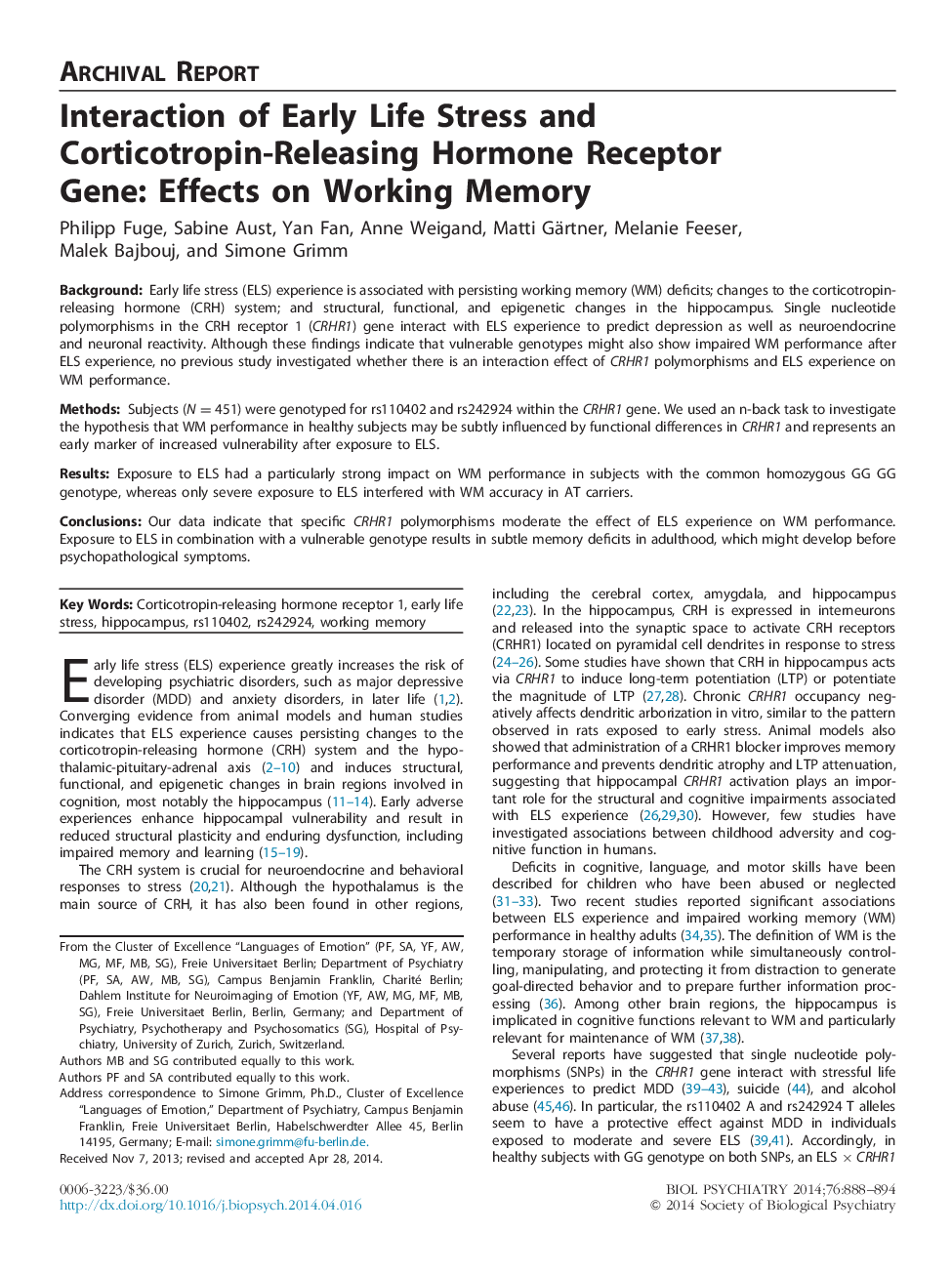| Article ID | Journal | Published Year | Pages | File Type |
|---|---|---|---|---|
| 4177310 | Biological Psychiatry | 2014 | 7 Pages |
BackgroundEarly life stress (ELS) experience is associated with persisting working memory (WM) deficits; changes to the corticotropin-releasing hormone (CRH) system; and structural, functional, and epigenetic changes in the hippocampus. Single nucleotide polymorphisms in the CRH receptor 1 (CRHR1) gene interact with ELS experience to predict depression as well as neuroendocrine and neuronal reactivity. Although these findings indicate that vulnerable genotypes might also show impaired WM performance after ELS experience, no previous study investigated whether there is an interaction effect of CRHR1 polymorphisms and ELS experience on WM performance.MethodsSubjects (N = 451) were genotyped for rs110402 and rs242924 within the CRHR1 gene. We used an n-back task to investigate the hypothesis that WM performance in healthy subjects may be subtly influenced by functional differences in CRHR1 and represents an early marker of increased vulnerability after exposure to ELS.ResultsExposure to ELS had a particularly strong impact on WM performance in subjects with the common homozygous GG GG genotype, whereas only severe exposure to ELS interfered with WM accuracy in AT carriers.ConclusionsOur data indicate that specific CRHR1 polymorphisms moderate the effect of ELS experience on WM performance. Exposure to ELS in combination with a vulnerable genotype results in subtle memory deficits in adulthood, which might develop before psychopathological symptoms.
